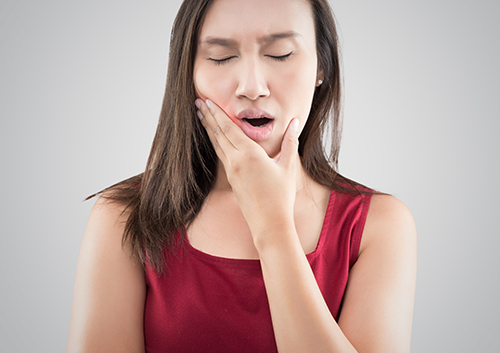Can Your Dentist Tell If You’re Left-Handed?
November 30th, 2022

Sherlock Holmes, that most famous of fictional detectives, observed clues, analyzed them, and used his powers of deduction to arrive at the solution to his cases.
Dr. Kirk Fishbaugh and our team are skilled in deduction as well! By examining your teeth and gums during your regular checkup, important clues can be discovered about your dental health—and perhaps your overall health as well. What might be deduced when you come in for an exam?
- You Haven’t Been Flossing
Even with some last-minute catchup flossing, it’s not hard to tell if you’ve been regularly skipping the flossing portion of your daily dental care. Plaque that your toothbrush just can’t reach on its own will be noticeable between your teeth and around the gum line. Your gums might be inflamed, swollen or bleeding—early signs of the gum disease plaque causes when it’s not removed with careful flossing.
These symptoms could arise because you’re neglecting to floss at least once a day, or it could be that your flossing skills could simply use some fine-tuning. A refresher in flossing technique takes no time at all. Or, you might discuss whether a water flosser would be a good investment for healthier teeth and gums if, for any reason, you have difficulty flossing effectively.
- You Haven’t Been Sleeping Well
Even if your roommate or partner hasn’t told you that your teeth and jaws have been grinding away while you were not-so-soundly asleep, your dentist might be able to. Shorter, flattened teeth are a common symptom of bruxism, or tooth grinding. Your exam might reveal cracked enamel or broken cusps caused by the force you’re placing on them at night. This condition can also lead to larger jaw muscles and jaw pain.
Since these symptoms are also caused by sleep apnea, it’s a very good idea to find out what’s causing this dental stress. Treatments are available to make your sleep safer for your teeth and jaws—and more restful and healthier for you!
- You Should Talk to Your Doctor
Conditions that seem to have nothing to do with your oral health can cause dental symptoms, alerting your dentist to a medical condition which you might not be aware of. Pale gums or a swollen tongue could be symptoms of anemia. Erosion on the inside of the teeth can be caused by GERD, or gastroesophageal reflux disease. Vitamin and mineral deficiencies can lead to ulcers, loose teeth, and gum disease.
If Dr. Kirk Fishbaugh and our team suggest that you make an appointment with your doctor to find the medical cause of your dental symptoms, it’s essential to follow up.
- Are You Left-Handed?
So, getting back to our original question, can your dentist deduce that you’re left-handed?
Probably not! It’s been suggested that left-handed people brush their teeth more firmly on the left side, and right-handed people brush harder on the right. And it’s also been suggested that left-handers don’t brush the left side of the mouth as thoroughly, while right-handers neglect their dominant side.
But Dr. Kirk Fishbaugh can still tell you some important facts about your hand-brush coordination just by observing the state of your enamel. If you’re brushing too firmly, your tooth surfaces could show erosion and wear. A soft-bristled brush and a lighter hand will get your teeth just as clean without the abrasion.
If you’re having trouble reaching areas because of dexterity issues, Dr. Kirk Fishbaugh can point out the areas where plaque buildup reveals the spots you need to concentrate on. An electric toothbrush might be just the answer to making all the surfaces of your teeth equally accessible.
A dentist is an expert in observing, analyzing, and solving dental problems. When you keep to a regular schedule of exams and cleanings at our Green Bay, WI dental office, you’ll benefit from that expertise to discover oral health issues before they become more serious. That’s an easy and elegant solution to maintaining your dental health. In fact, it’s elementary!


